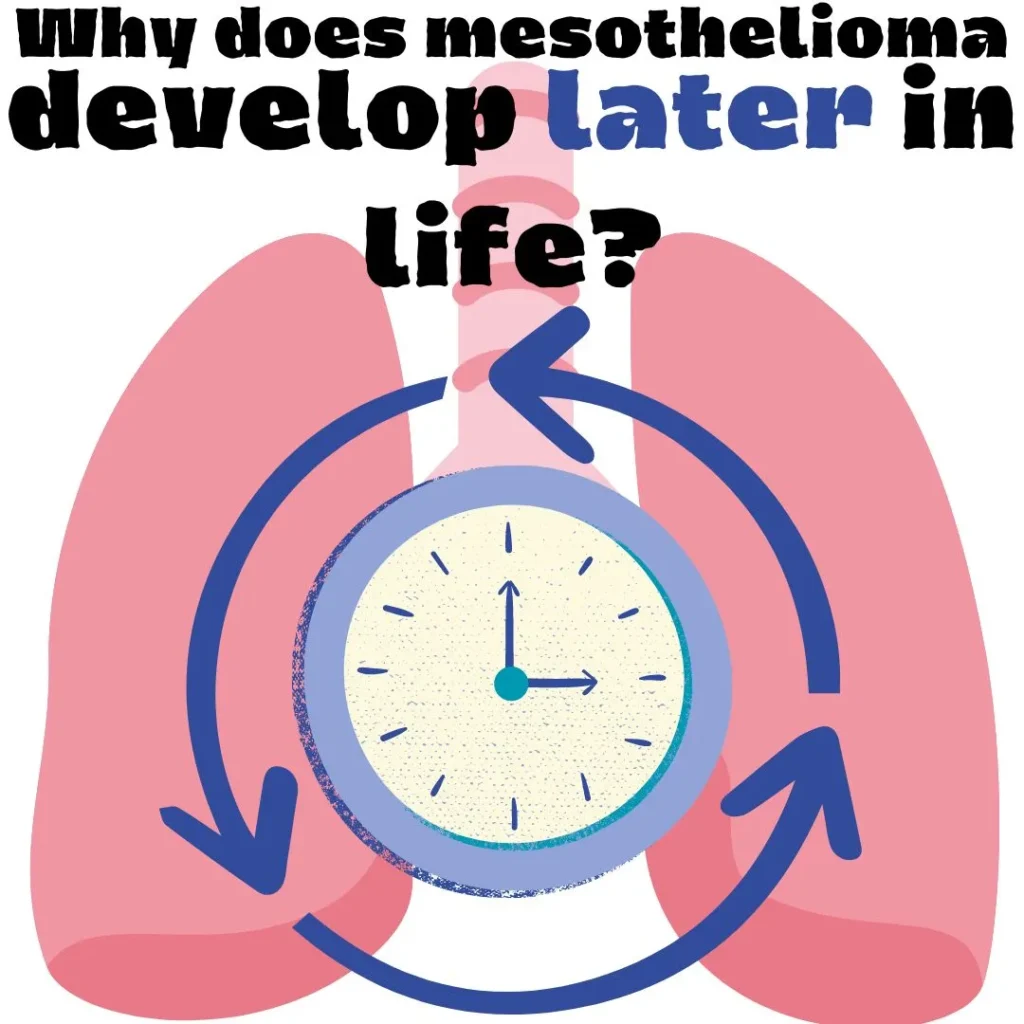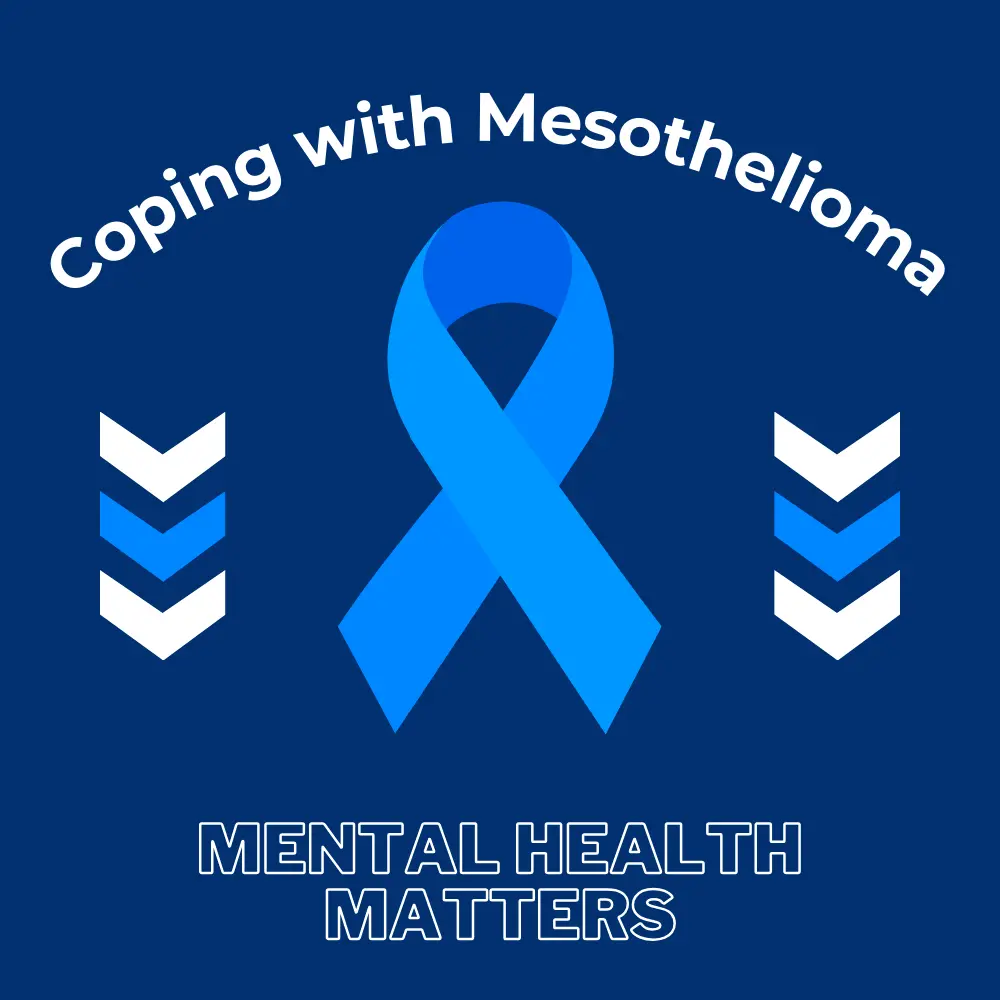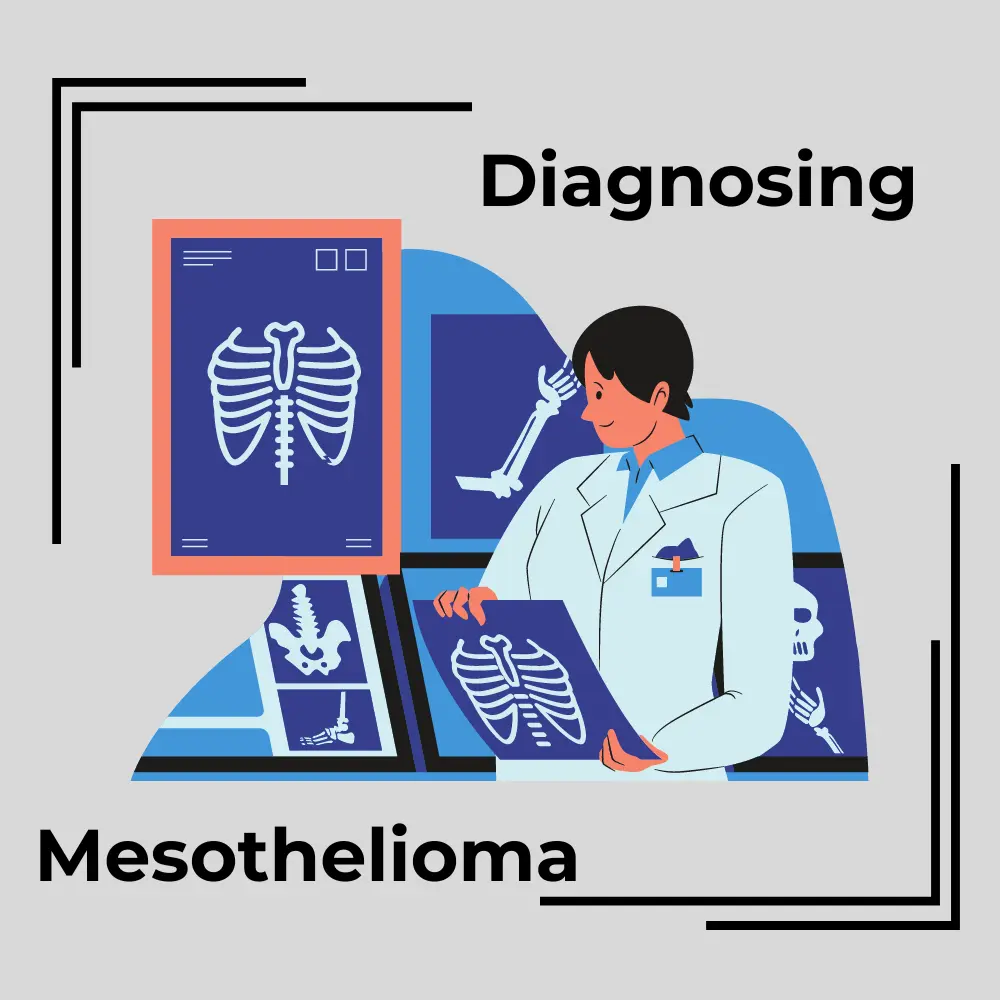Why is the Latency Period of Mesothelioma so Long?

Key takeaways: The latency period of mesothelioma is the time elapsed between asbestos exposure and mesothelioma onset, and lasts anytime between 20-50 years. During this time, mesothelioma can’t be targeted, treated, or reversed, so it’s an area rich with implications for treatment and possible prevention. Currently, we know that early exposure and relatively high concentrations […]
The Effects of Mesothelioma

The mental health effects of mesothelioma are truly burdensome for both victims of the cancer as well as caregivers. This is due to a variety of reasons. Mesothelioma is a rare form of cancer, with about 3,000 cases each year in the United States. This may make it hard for victims to relate to others […]
Mesothelioma Diagnosis

It can be very difficult to obtain a correct mesothelioma diagnosis. There has been research done and guidelines put in place to streamline the process of diagnosis. It is vitally important that someone who is experiencing symptoms of mesothelioma get tested as soon as possible. The earlier the diagnosis, the better the prognosis and the […]
Using Gene Therapy to Treat Mesothelioma
Key takeaways: A characteristic of mesothelioma is its genetic mutations, which result in lossof immune function, a usurping of normal anti tumor capacities, and a weakening of the safetynets that prevent cells from becoming cancerous. Gene therapy—without modifyinggenes—seeks to replace the functions of the mutated genes, either by introducing their products,introducing healthy segments of the […]
Timeline: Asbestos and Mesothelioma
The journey of asbestos to mesothelioma is complex and eventful. From its birth in the stone age history to its modern-day uses in everyday products, asbestos has persisted in many places around the world. Valuable lessons have been learned throughout this journey and the rich history is one for doctors and patients to not only […]
What are the Odds of Getting Mesothelioma?
If you have been exposed to asbestos, you might be wondering: what are the odds of getting mesothelioma? Mesothelioma is a rare type of cancer occurring in vital organs and has historically been acknowledged to be linked to asbestos exposure. There are roughly 3,000 cases per year in the United States, which has since decreased […]
Testicular Mesothelioma
Key takeaways: Testicular mesothelioma is the rarest manifestation of mesothelioma, and presents with symptoms similar to a hernia or testicular cancer. Symptoms include localized swelling, lumps on the scrotum, pain in groin, and even abdominal pain or swelling. Because these are non-specific symptoms, it’s imperative to let your doctor know if you’ve had known exposure […]
Pleural Plaques: Asbestos-Related Disease
Key takeaways: Pleural plaques are benign collagen growths that form in response to ingested asbestos fibers. There are no treatment plans associated with plaques, except for managing the pain that occasionally accompanies them. There are discrepancies about whether or not plaques might contribute to a mesothelioma diagnosis, but it seems that mesothelioma is mostly contingent […]
Tracking Mesothelioma Growth: EMT
Key takeaways: EMT is the process by which epithelial cells become mesenchymal, or migratory and stem cell-like. When epithelial cells migrate, they can become cancerous and invasive. EMT has been established as a contributor to other aggressive cancers, so it makes sense that it would be implicated in the carcinogenesis of mesothelioma and mesothelioma growth. […]
How Can We Enhance Existing Mesothelioma Treatments?
Key takeaways: Although new mesothelioma treatments are being developed, there’s a notablelag time between trial approval and widespread implementation. The existing treatments, likechemotherapy and surgery, pose serious risks for patients that might outweigh benefits; thisnecessitates a reimagining of these treatments. Recent studies have tackled this “reimagining”: asupplement of p53-infused powder can successfully augment chemotherapy, and […]
Clinical Trials: Immunotoxins and Mesothelioma
Key takeaways: Immunotoxins are immune cells that have been chemically bound to toxicchemicals. These immune cells are able to target specific cells—in this case, mesothelioma cellsby way of mesothelin—and kill them. LMB-100 is a mesothelin-targeting immunotoxictreatment that successfully completed clinical trials. Immunotoxins like LMB-100 aren’t yet awidespread means of treatment, but their success is promising. […]
Is Mesothelioma Hereditary?
If you’re reading you might be asking yourself, is mesothelioma hereditary? The short answer to this is perhaps, but it is extremely rare. Cancer.Net reports this occurrence in 1% of all mesothelioma cases. However, there’s a much deeper explanation to this question. While mesothelioma cannot occur strictly due to genetics and requires some form of […]
Asbestos and Fiberglass
In the world of construction and insulation materials, asbestos and fiberglass are often found at the forefront. Containing properties that make them resistant to heat are not only good for vessels ships or cars, but they can be found in homes such as in roofing or pipes. However, although having similar properties, the two possess […]
Multimodal Imaging: Diagnosing Mesothelioma
Key takeaways: As of now, diagnosing mesothelioma can be done through a biopsy, or a sampleof living tissue. Multimodal imaging—which is the utilization of several imaging techniques fordiagnosis—might become a more commonplace practice, considering the invasive nature ofbiopsies and the urgency of diagnosis. Some forms of multimodal imaging techniques includechest x-rays, CT scans, PET scans, […]
Friable and Non-Friable Asbestos
The valuable and infamous mineral, asbestos, was discovered in the 1900s to negatively affect human health. Doctors and asbestos workers alike began to notice a disturbing trend. Individuals who were regularly exposed to asbestos, or in this case occupational exposure, were developing horrible respiratory issues. The symptoms ultimately led to the discovery of asbestos-related diseases […]
Facts About Mesothelioma
Mesothelioma is a rare disease that can really take a toll on a person, both physically and mentally. In this article I will explain some facts about mesothelioma in order to inform you of some things that you might not already know. Although it is a rare form of cancer, its prognosis is poor, so […]
Mental Health and mesothelioma
Key takeaways: Mesothelioma patients and their caregivers often deal with poor mental healthduring the diagnosis and treatment processes, including depression, anxiety, and stress. Whilethese symptoms don’t affect the progression of mesothelioma, they do affect patient well-beingand willingness to seek out care. Traditional therapies, like talk-therapy, medication, and supportgroups have proven successful for mesothelioma patients. Some […]
What is Immunotherapy for Mesothelioma?
Key takeaways: Immunotherapy is a new treatment option for mesothelioma patients, in whichdrugs administered intravenously work to supplement and reinvigorate the natural immuneresponse. Because mesothelioma cells can only thrive if the immune response is damaged,restoring its function is an effective treatment option. Despite a lack of consensus about“standard practices” for treating mesothelioma, chemotherapy has typically […]
Mesothelioma Cell Types
Investigating not only the location of the mesothelioma but the type of cell initiated can reveal how to best approach treatment. There are three main cell types concerning mesothelioma: epithelioid, biphasic, and sarcomatoid (“Types and Grades of Mesothelioma”). Mesothelioma is a rare form of cancer that lines the mesothelial tissue. This type of cancer most […]
BAP1 Gene: Regulating Mesothelioma
Key takeaways: The BAP1 gene encodes for a variety of regulatory proteins and processes, andis considered an antitumor gene. Mesothelioma onset is associated with a BAP1 mutation, eitherinherited (called a germline mutation) or caused by ingested asbestos. A BAP1 mutation allowsmesothelioma cells to proliferate and spread, virtually unchecked. Although there isn’t a way toreverse a […]